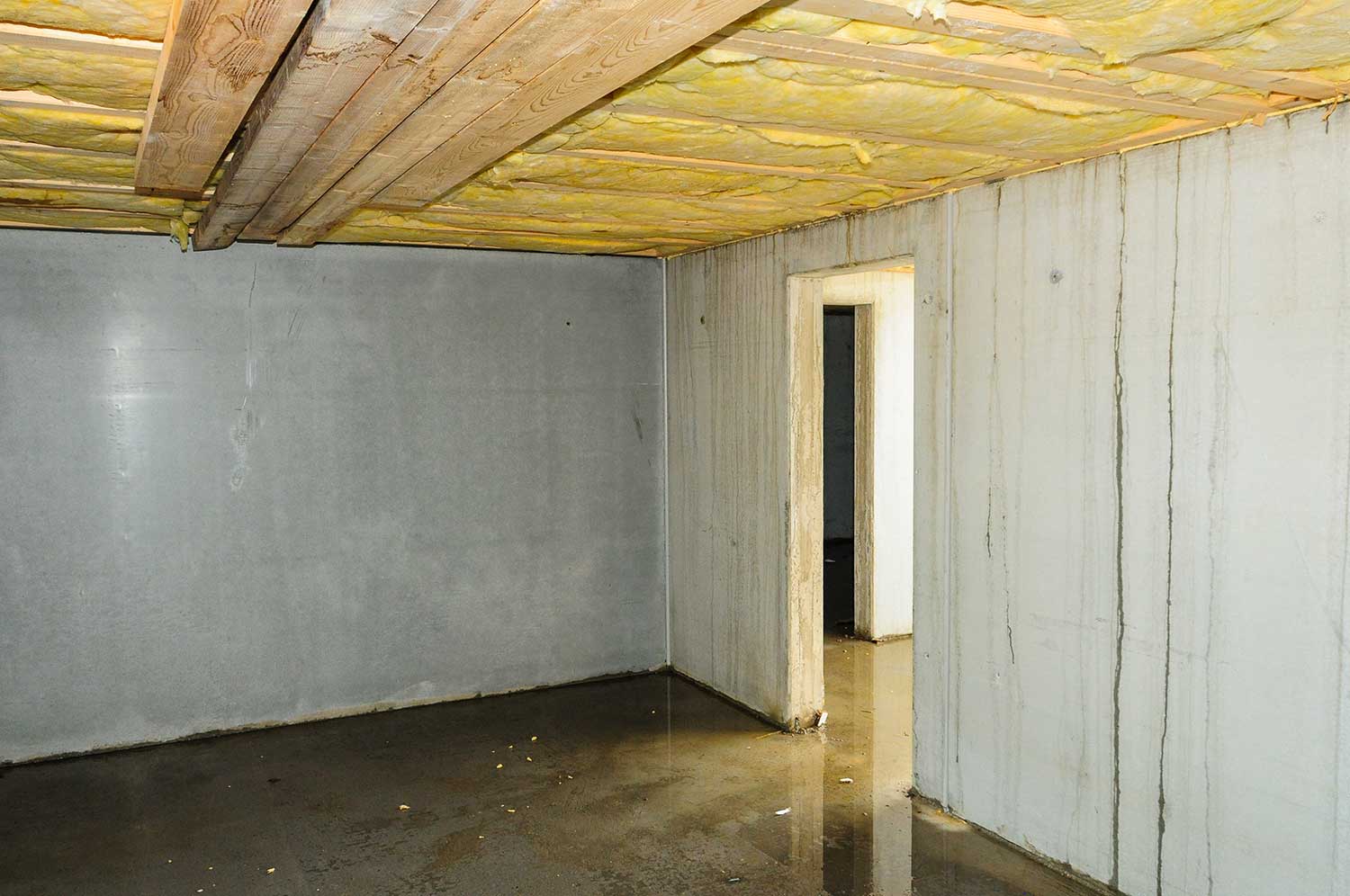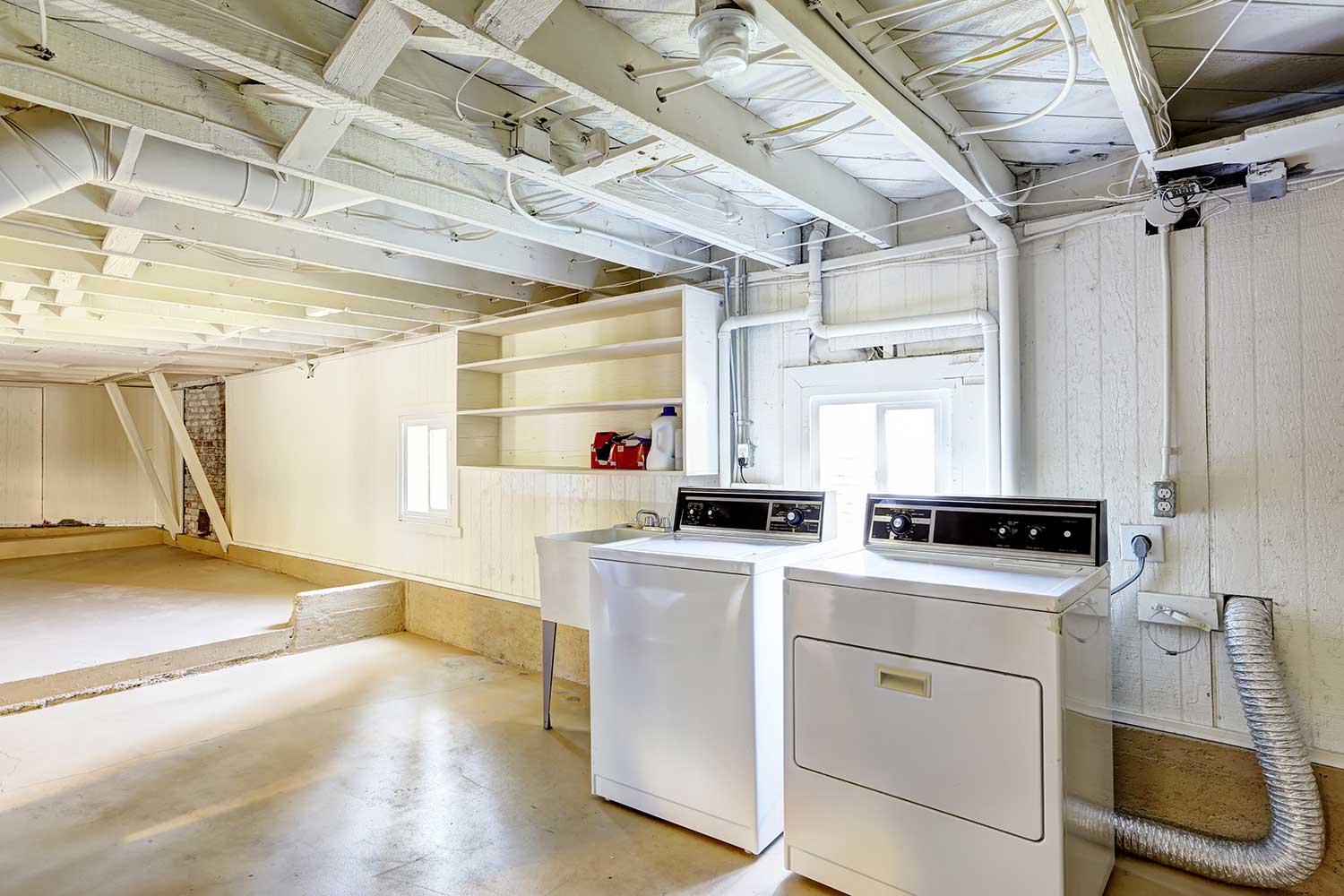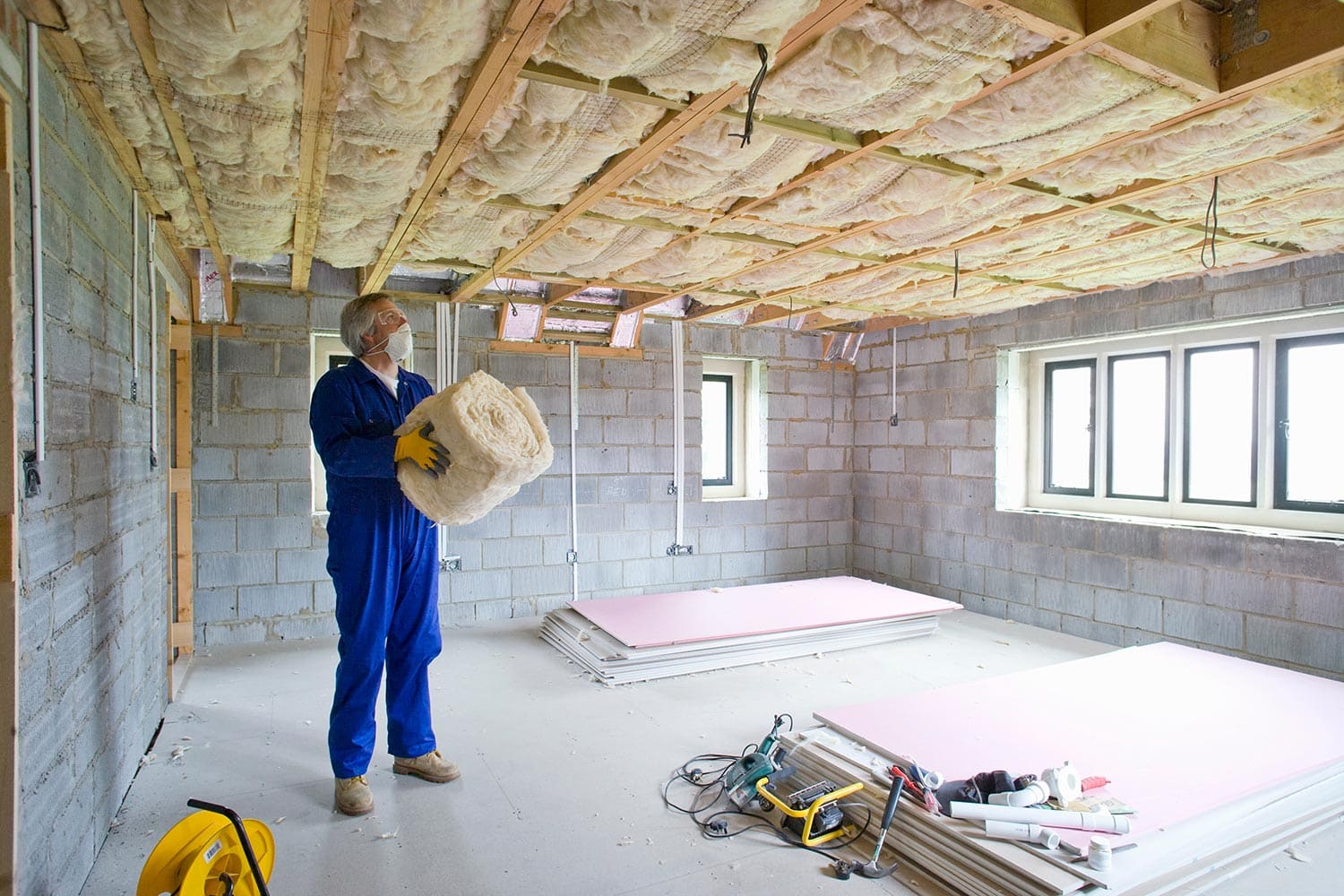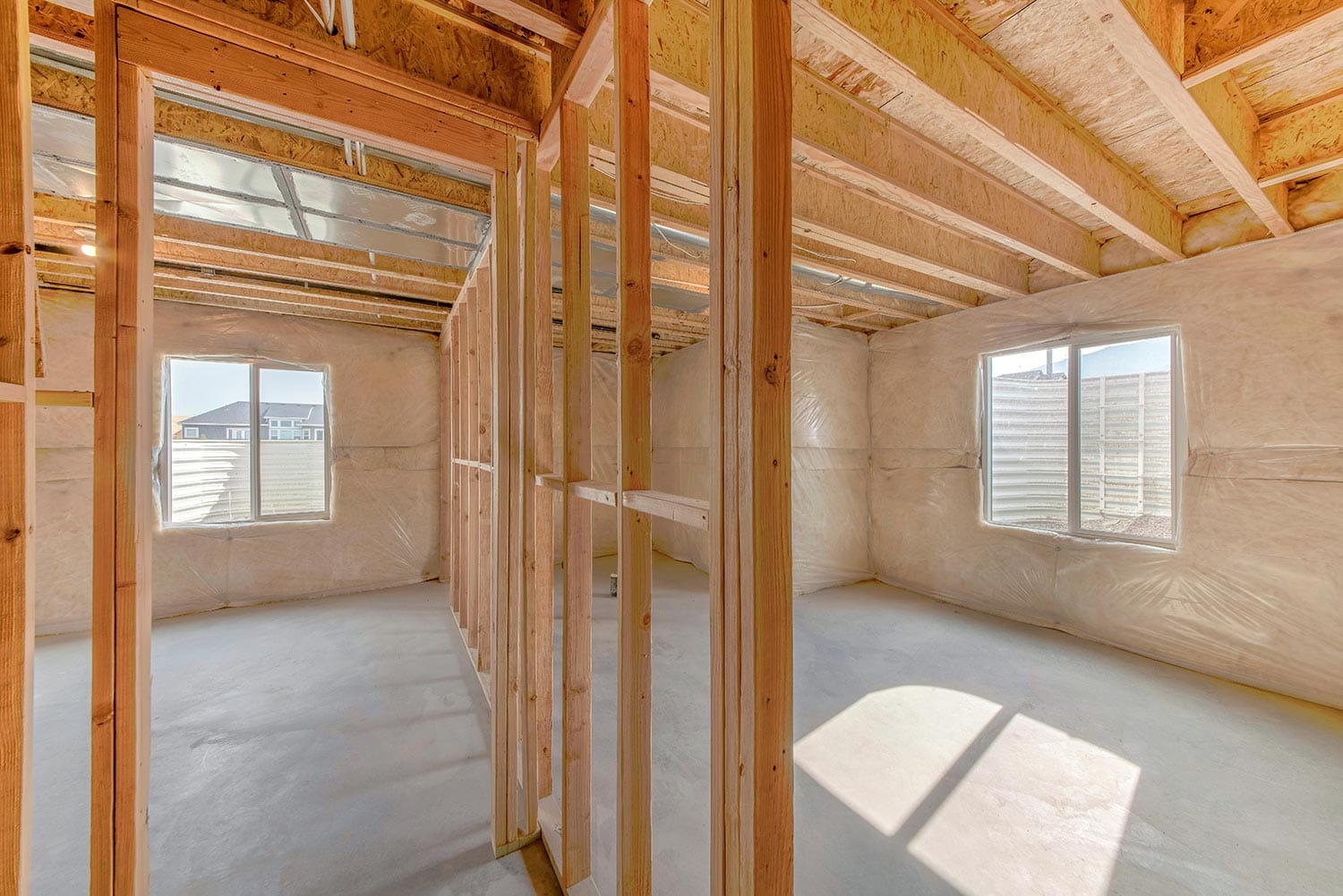Basements are known for being one of the coldest rooms in a home. But do their ceilings need insulation? We've researched whether or not basements need to have insulated ceilings, and in this post, we will share our findings with you.
Basements don't require insulation. However, there are advantages and disadvantages to installing insulation in your basement's ceiling. The answer to this question would be that it depends on a few things, including whether or not your basement has wall insulation already. For example, if you plan to finish your basement, it's best to have ceiling insulation to help keep the basement warm.
The most important thing to remember is that your basement should be kept dry and conditioned. This is essential to keeping it free of pests and moisture issues. Continue reading to learn more about basement ceiling insulation and other related topics.

Advantages and Disadvantages of Basement Ceiling Insulation

More often than not, basements are among the last places in a home that most homeowners will think to insulate, particularly when they're not finished. And this is especially true for the ceiling of the basement. When applying insulation to the basement, homeowners typically apply it to the interior and exterior walls only. Let's look at the pros and cons of installing ceiling insulation in the basement.
Advantages
Additional energy savings
Basements that have insulated ceilings may offer increased energy savings. Though basements will receive most of their cold air through the walls, windows, and doors, they can also receive cold air from the upstairs if it is left unheated. For example, if you live in an area that has cold winters and you go on vacation for a few weeks without programming your thermostat, this can cause the temperatures in the upper levels of the home to drop significantly.
In which case, the temperature in the basement may also drop if the ceiling isn't insulated in addition to the walls. Having the ceiling insulated can also help keep nearby pipes from bursting during freezing winters.
Noise proofing
One of the biggest reasons homeowners may insulate their basement ceiling is to add a soundproofing layer to their home. This is especially common in homes where the basement is used as a functional area, such as a theater room, home gym, or home studio. Noise proofing may also be desired if you have an especially noisy basement and prefer to keep the floor levels of the home quieter. For example, if you have a noisy washer, HVAC system, or home theater and want to dampen these sounds, ceiling insulation in the basement may be ideal.
Moisture
Insulation helps to control humidity in a room. If you live in a colder region, this can be beneficial for basements, as moisture can easily accumulate on the ceilings and walls, causing issues such as mold and mildew. If your basement is not finished and does not have insulation, installing insulation on the ceiling can help to reduce the amount of moisture that the basement produces.
Disadvantages
Cost
The most common reason why many homeowners choose not to insulate their basement ceiling is the added cost of taking on the project. Since most homeowners plan to heat their homes during the cooler months, many may not see the need to add insulation to the basement ceiling, especially since homeowners will typically warm the rooms above the basement in the winter. To save on insulation costs, many homeowners simply prefer to add insulation to the basement's surrounding interior and exterior walls instead.
Loss of ceiling height

Installing a layer of insulation on your basement ceiling will mean having to comprise ceiling height. Depending on the amount of insulation needed for your home specifically, you can lose anywhere from eight to 16 inches of height for the insulation alone; and even more, once the drywall is installed over the insulation. So if your basement is less than nine feet tall, this is something to consider beforehand. Take note that the average basement height for homes in the US is only seven feet.
Challenging to install
Anytime you perform work on the ceiling of a home, it will always be more challenging than performing work on walls, as you have to deal with gravity and height issues. This is definitely the case when it comes to installing insulation on a basement ceiling. Even when you use batt installation, it's important to make sure that it is correctly secured, or it may dip, sag, or eventually fall out of its position. For this reason, it's typically better to have an experienced contractor install the insulation. And this is a project that many homeowners may see as unnecessary.
As you can see, deciding whether or not to install basement insulation on your basement ceiling really depends on a few factors. The most important one being your use for the basement. It's also important to consider whether or not the basement already has wall insulation and how much time will be spent in the space.
Does insulating a basement ceiling reduce noise?
Yes. Noise reduction is a huge reason why many homeowners choose to insulate basement ceilings. With the right insulation, you can greatly reduce the amount of sound transmitted from the rooms above to the basement. This can be particularly beneficial if you use your basement as a home office, home theater, or other purposes for which you may require a quiet space. Conversely, this can also reduce the amount of sound coming from the basement to the upstairs rooms.
Can you use faced insulation in the basement ceiling?
Yes. Faced insulation is actually recommended on basement ceilings and ceilings in general. The covering or "face" of the insulation prevents it from falling out and trickling down into the basement air. This is especially advantageous if the insulation is made of fiberglass, which can harmful if it's ingested. When installing faced insulation on a basement ceiling, the insulation covering should face the basement floor to prevent debris from the insulation from falling out.
Learn more details about this faced insulation on Amazon.
How much does it cost to insulate a basement ceiling?

The cost to install insulation on a basement ceiling can range anywhere from $1.45 to $3.50 per square footage. So, for example, if your basement is 2,000 square feet, your cost can range anywhere from $2,900 to $7,000. You'll find that spray foam insulation will typically cost a bit less than fiberglass insulation. This is because the spray foam or blow-in insulation will be easier to install. On the other hand, installing fiberglass batts will be more laborious, particularly because it's a ceiling instead of a wall.
Before installing insulation on the basement ceiling, you'll first need to ensure that you have the correct R-value according to your city's building codes. You can also find this information on the Department of Energy site or by contacting your local government office.
Does a basement ceiling need vapor barrier?

In many colder regions in the US, vapor barriers are required as part of the building's coding requirements, which isn't necessarily the case in areas where the average temperature is warmer. That being stated, if you live in a warmer region and install a vapor barrier in your basement, it may do more harm than good. If your basement is finished, you typically won't need a vapor barrier because the insulation only will trap any moisture in the basement.
However, if your basement isn't finished and you notice condensation or moisture buildup during periods of cold weather, you may need to install a vapor barrier. This is more common in homes where there is no insulation in the basement. To be on the safe side and avoid spending money on a project that's not necessary, it's better to consult with a licensed HVAC technician to determine if one is needed for your basement ceiling.
Wrapping Things Up
We hope this post has helped provide you with sufficient information on installing insulation on a basement ceiling. If you plan to install the insulation yourself, it's still best to set aside a couple of days, as ceiling insulation typically takes longer to install than wall insulation, especially if your installing batt insulation.
Before you go, be sure to check out our other posts:


Is there a code requirement for basement ceiling insulation in older residential homes, but renovation is only on upper living levels?